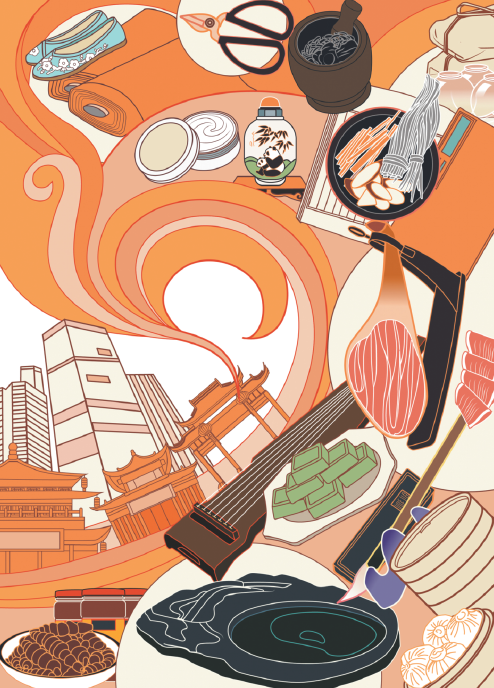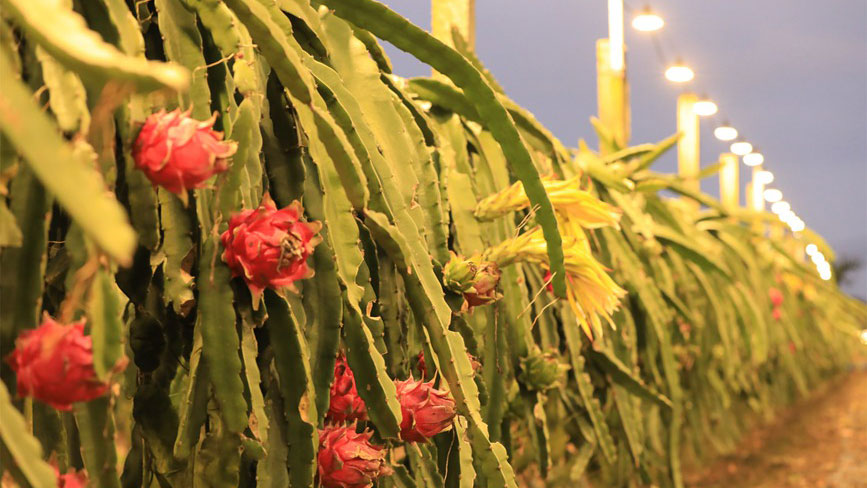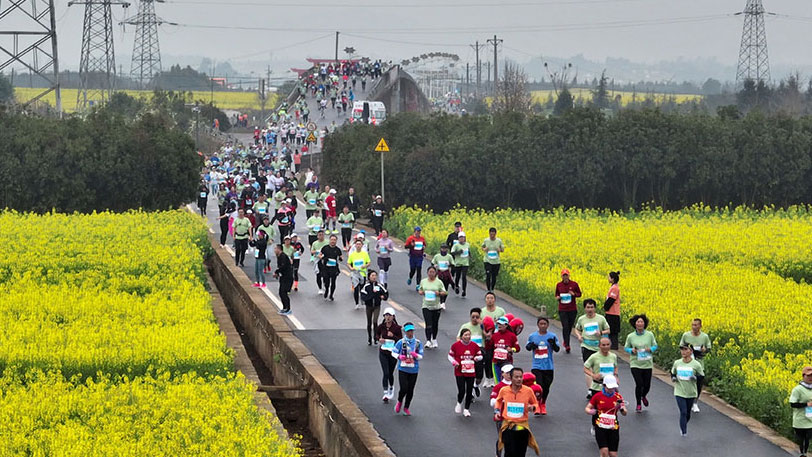Policy lends hand to heritage brands

SHI YU/CHINA DAILY
Laozihao seen as key to promoting culture, boosting consumption
The evolution of consumption in China has created both great opportunities and challenges for time-honored — or heritage — brands, which are known as laozihao in Chinese.
Some have evolved into outstanding representatives of distinctive tradition and culture in their regions of birth, attracting tourists and playing an increasing role in the consumer market. However, many others are struggling to adapt to changing times.
The Ministry of Commerce, the Ministry of Culture and Tourism and the National Cultural Heritage Administration issued a policy notice in January suggesting that market players and other related parties tap into the history and culture of laozihao to boost consumption.
The hope is that this will lead to more creative products being developed and that consumers will be able to better appreciate the heritage and cultural essence of time-honored brands.
The Ministry of Commerce said that the policy's ultimate goal is to respond to consumption trends nationwide and better cater to public demands.
Stronger support
Authorities will increase the protection of more than 12,000 historical artifacts owned by approximately 1,100 nationally accredited laozihao, according to the policy.
Land use rights and tax support will be given to laozihao with lengthy histories for them to open museums to display artifacts that reflect socioeconomic changes over time. The brands will also be encouraged to stage events and activities to help pass on their traditions, and to create new venues for consumption.
Moreover, efforts will be made to push forward the construction of a digital laozihao museum that will preserve and display the developmental histories of brands through e-books, pictures and videos.
Traditional blocks and clusters of ancient architecture will be advised to set up facilities that showcase local laozihao elements to reflect commercialization and folk customs, the notice stated.
At the same time, authorities will help time-honored brands make inroads in the international market through major events such as the China International Import Expo, the China International Consumer Products Expo and the China International Fair for Trade in Services.
The notice clarified specific objectives and policy initiatives to strengthen the brands' efforts to explore their historical and cultural resources and stimulate consumption, said Pan Helin, co-director of the Digital Economy and Financial Innovation Research Center at Zhejiang University's International Business School.
"Currently, China is at a key point of consumption recovery, and it would be very efficient and effective to grow laozihao (influence)," Pan said.
He added that the relaxation of COVID-19 control policies has accelerated the resumption of social activity and has provided an outlet for people's pent-up desire to go out and shop.
Therefore, efforts to tap into the history and culture of time-honored brands come at an opportune time.
"The initiatives will promote the release of pent-up consumer demand by improving buyers' experiences."
They will also put laozihao in a key position to drive a short-term surge in regional tourism and demand, which will give rise to positive feedback between the brands and regional consumption, according to Pan.
"The deep integration of laozihao with historical and cultural resources will help the brands further explore their value and enhance the global influence of Chinese culture while stimulating sales," he explained.
He suggested that laozihao maintain a balance between tradition and modernity while finding ways to innovate. Furthermore, digitalization can be used to present insights into a brand's business operations and craftsmanship so that buyers can better appreciate them.
Livestream potential
Industry insiders also hailed the call to host laozihao carnivals and shopping festivals and help brands perform better on online platforms.
Many are already making their presence known on the internet.
During the nationwide Double 11 shopping festival last year, 50 time-honored brands reported sales exceeding 10 million yuan ($1.4 million) each on major e-commerce platforms like Taobao and JD, while 15 brought in 100 million yuan.
During the New Year holiday, online consumption of laozihao products rose by 30 percent year-on-year, the Ministry of Commerce reported.
Goubuli, a company in Tianjin renowned for its buns, has started livestreaming its products, which has endeared it to consumers.
The company has also learned to tailor production to demand via online data analysis.
On Jan 10, historical brands in Zhejiang province, including rice dumpling maker Wufangzhai and Zhufu Copper Art, saw their products snapped up during a livestream on Taobao.
Zheng Yongbiao, deputy director of Hangzhou's business bureau, said that livestreaming can fully empower laozihao enterprises, tap their potential in the expanding consumer market and boost consumption.
The city has 500 laozihao accredited at the provincial level and 90 at the national level.
"All of them are the best products to drive consumption," said Ding Huimin, secretary-general of the Chinese laozihao e-commerce alliance.
Ding said her organization will endeavor to include more time-honored brands in livestreams to display their craftsmanship and culture "in an interesting and trendy way".
Shang Xiping, president of the major domestic retailer Wangfujing Group, said the success of relatively few laozihao brands means there is still plenty of potential to be tapped in overall development nationwide.
He stressed that brands must retain their core competitiveness and cultural identity.
"They have their own formulas for success, which they can use to create new avenues of consumption to meet the cultural demands of young people," Shang said.
Renowned brands should consider systematic reform, product innovation, packaging design, cooperation with other brands and livestream promotions to boost business, experts said.
"They will gain renewed vigor after fully tapping their existing technology and adapting to the new market environment," he said.
The Wangfujing Group will continue working with time-honored brands in various fields and develop a series of distinctive goods that take young consumers' consumption habits into consideration, while helping spread laozihao culture, he said.
Driving consumption
With the development of the digital economy, consumption of Chinachic goods — the trend of consuming domestic products — has been growing, said Liu Tao, a researcher with the market economy research institute at the Development Research Center of the State Council, China's Cabinet.
Time-honored food, clothing and daily necessity brands that have adapted to consumer trends through changes to their technology and business models have become important drivers of consumption, Liu added.
Liu Shuai, an assistant researcher with the macroeconomic research center at the Chinese Academy of Fiscal Sciences, believes that making brand history and culture available online will play a positive role in expanding areas of consumption such as pedestrian streets and will help boost domestic demand.
Experts concurred that laozihao should take advantage of the opportunities presented by the new policies to develop an accurate understanding of customer needs and adjust product design, function, packaging and positioning according to feedback.
Shu Jueting, spokeswoman for the Ministry of Commerce, said efforts will continue to be made to push for laozihao to fall in line with national consumption development, roll out new products and services, and create new sites for consumption.
"So that shoppers can experience the customs of different regions when they buy time-honored brands and experience the charms of the traditional culture," she said.
Photos
Related Stories
- Chinese brands aim to promote high-quality development
- 'First-store economy' leads consumption upgrade
- China's home-grown products increasingly popular among consumers
- Chinese brands riding wave of "new manufacturing"
- China Brand Show to promote economic, trade exchanges between China, Rwanda
- Chinese brands rank in 2019 Brand Finance Global 500 report
- Time-honored Chinese brands cooperate to satisfy consumers with creative products
- Chinese brands revamp marketing to appeal to new generation of customers
- 66 Chinese enterprises now in world’s 500 most valuable brands
- China’s brand value of $10 trillion ranks second in world: UK report
Copyright © 2023 People's Daily Online. All Rights Reserved.









